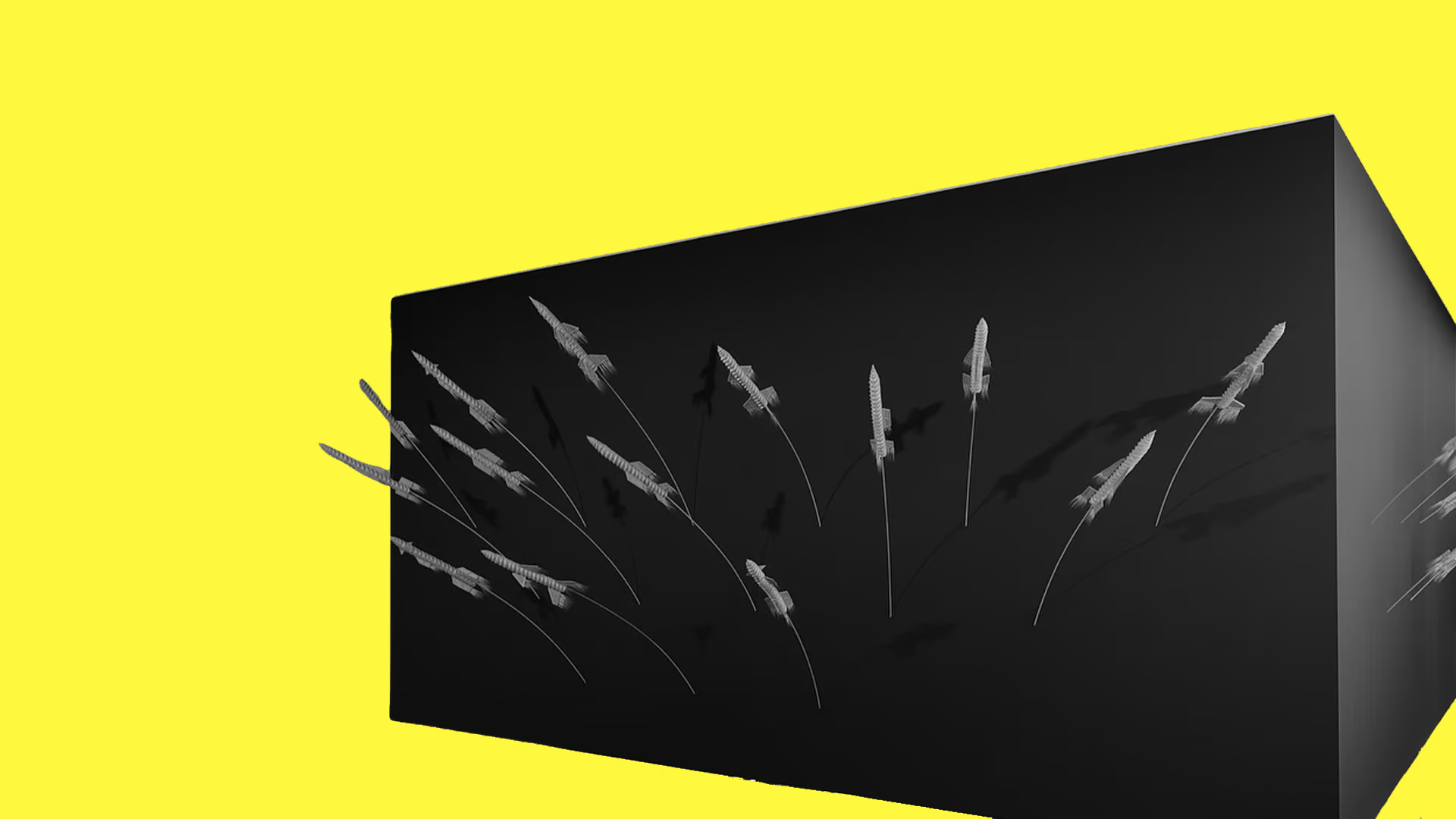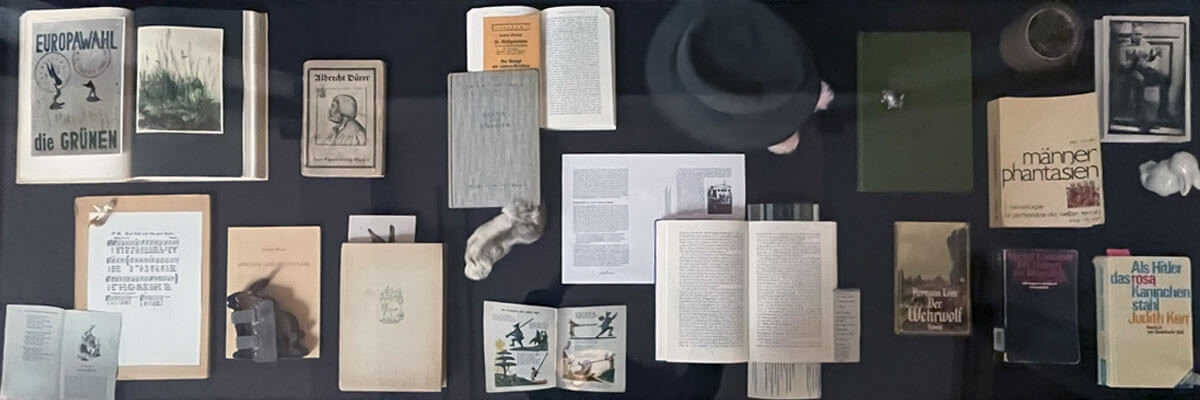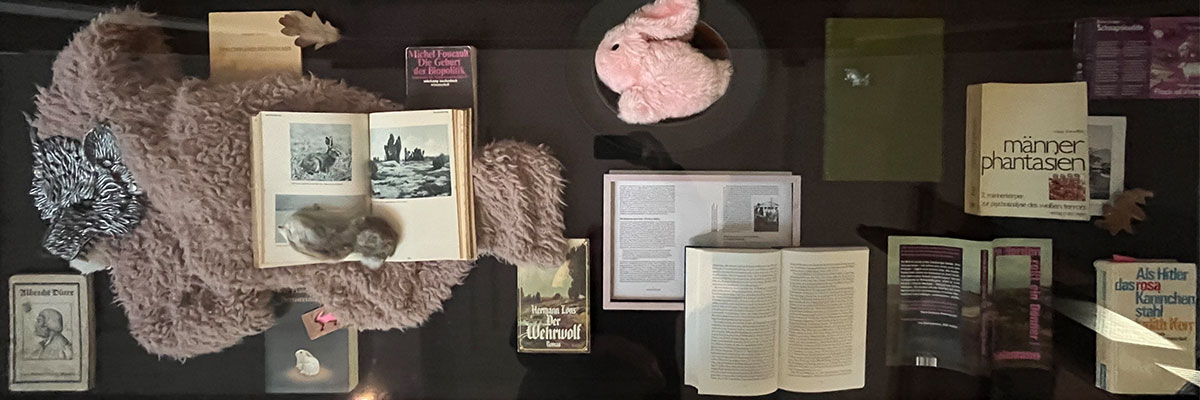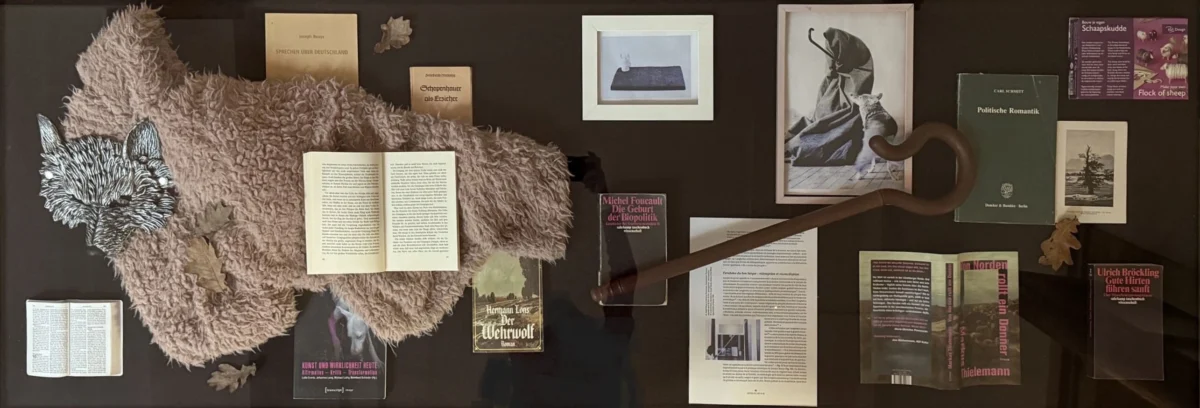Kategorie: Exhibition Ecologies
-

Garden Futures and the Temporality of Critique
Weiterlesen: Garden Futures and the Temporality of CritiqueThe field of design has long evinced a self-reflexive relationship to the realm of non-human life conceptualized as “nature.” From the development of biomorphic form in response to the incipient industrialization of the crafts in the mid-nineteenth century to contemporary “eco-friendly” objects designed to sustain complex biotopes, designers have espoused a range of positions toward…
-

Planetar oder doch global?
Weiterlesen: Planetar oder doch global?Eine Rezension von „Planetarische Bauern – Landwirtschaft, Kunst, Revolution“ im Kunstmuseum Moritzburg, Halle (Saale), 23. Mai bis 14. September 2025
-

Das Bücherbeet. Künstlerisch-kuratorische Essays zu Kunst und Ökologie
Weiterlesen: Das Bücherbeet. Künstlerisch-kuratorische Essays zu Kunst und ÖkologieSeit April wird eine Vitrine im ZI als eine Art Hochbeet von Nanne Buurman (Forschungsgruppe Kunst, Umwelt, Ökologie) kuratorisch-forschend „begärtnert“. Fortlaufend neu arrangiert und ergänzt, entstehen in dieser experimentellen Versuchsanordnung im Laufe des Jahres immer wieder neue Konstellationen zwischen den ausgestellten Materialien, die saisonal jeweils andere inhaltliche und ästhetische Querverbindungen in Erscheinung treten lassen. Der…
-

Das Bücherbeet. Künstlerisch-kuratorische Essays zu Kunst und Ökologie
Weiterlesen: Das Bücherbeet. Künstlerisch-kuratorische Essays zu Kunst und ÖkologieSeit April wird eine Vitrine im ZI als eine Art Hochbeet von Nanne Buurman (Forschungsgruppe Kunst, Umwelt, Ökologie) kuratorisch-forschend „begärtnert“. Fortlaufend neu arrangiert und ergänzt, entstehen in dieser experimentellen Versuchsanordnung im Laufe des Jahres immer wieder neue Konstellationen zwischen den ausgestellten Materialien, die saisonal jeweils andere inhaltliche und ästhetische Querverbindungen in Erscheinung treten lassen. Der…
-

Das Bücherbeet. Künstlerisch-kuratorische Essays zu Kunst und Ökologie
Weiterlesen: Das Bücherbeet. Künstlerisch-kuratorische Essays zu Kunst und ÖkologieSeit April wird eine Vitrine im ZI als eine Art Hochbeet von Nanne Buurman (Forschungsgruppe Kunst, Umwelt, Ökologie) kuratorisch-forschend „begärtnert“. Fortlaufend neu arrangiert und ergänzt, entstehen in dieser experimentellen Versuchsanordnung im Laufe des Jahres immer wieder neue Konstellationen zwischen den ausgestellten Materialien, die saisonal jeweils andere inhaltliche und ästhetische Querverbindungen in Erscheinung treten lassen. Der…
-

The Missing Link
Weiterlesen: The Missing LinkLinn Burchert and Alexandra Masgras review Vernetzte Welten, on view at the Germanisches Nationalmuseum, Nuremberg By the 1970s the term globalization gained currency in academic and corporate discourse as a means of describing the increasing interconnectedness of economies and cultures. Now an indubitable fact, globalization stirs attention across the political spectrum. While right-wing detractors are…
